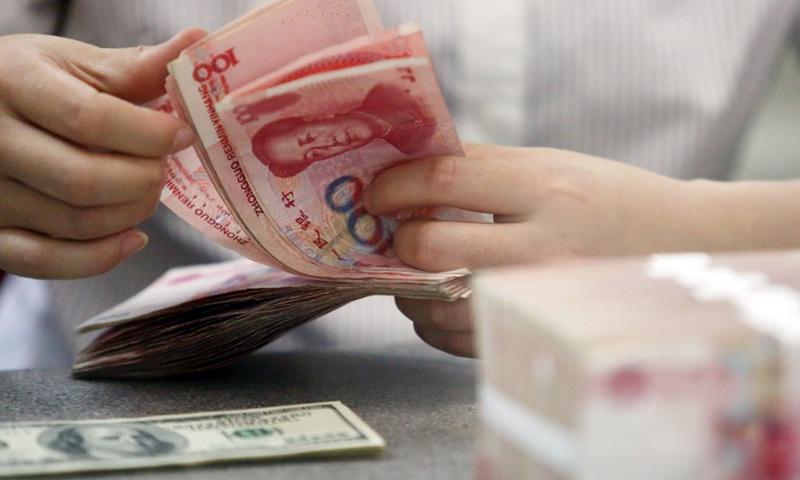
File photo shows a worker counts Chinese currency Renminbi (RMB) at a bank in Linyi, east China's Shandong Province. (Xinhua/Zhang Chunlei)
China's holdings of US Treasury debt fell to $772 billion in September, a drop of $2.6 billion month-on-month, marking the third consecutive monthly decline, according to data released by the US Department of the Treasury on Monday (US time).
In September, China remained the second-largest holder of US government debt. However, China's holding of US government debt has been below the $1 trillion mark since April 2022.
Japan, the largest holder of US government debt, reduced its US Treasury bond holdings by $5.9 billion in September, the data showed.
"The reduction in China's holdings of US government debt should be a result of market behavior. The overall amount of US government debt that China holds remains largely stable, since a reduction of $2.6 billion is not much compared with the total amount of US government debt that China holds," Zhao Qingming, a Beijing-based veteran financial expert, told the Global Times on Tuesday.
In addition to China's foreign exchange reserves, many Chinese financial institutions such as commercial banks and institutional investors also hold US Treasury bonds. Some commercial financial institutions may have adjusted their holdings of those bonds in line with market factors such as debt profitability, Zhao said.
Xi Junyang, a professor at the Shanghai University of Finance and Economics, told the Global Times on Tuesday that China has diversified its foreign exchange reserve assets in recent years, with increased purchases of assets such as gold.
According to data released by the State Administration of Foreign Exchange (SAFE) on November 7, China's foreign exchange reserves totaled $3.26 trillion at the end of October, a decline of $55.32 billion from the end of September.
China is effectively implementing a host of policies to consolidate the momentum of economic growth, which is conducive to generally stable foreign exchange reserves, the SAFE said.



